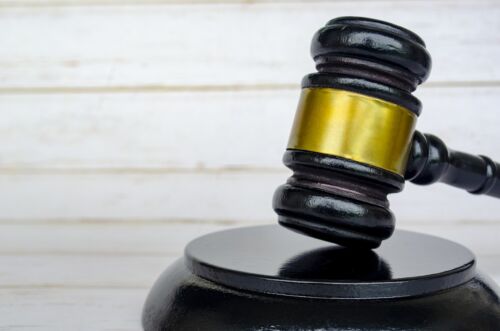


On May 22, 2025, the U.S. Supreme Court announced its decision in Kousisis v. United States, finding that a defendant who induces a victim to enter into a transaction under materially false pretenses can be convicted of federal fraud, even if the defendant did not intend to cause the victim economic loss. The ruling is a departure from previous cases that had narrowed the application of federal fraud statutes.
Defendant Stamatios Kousisis and his company, Alpha Painting and Construction Co., were awarded painting contracts by the Pennsylvania Department of Transportation (PennDOT). PennDOT required that a certain percentage of contracts be awarded to Disadvantaged Business Enterprises (DBEs). Kousisis misrepresented that his company would use a DBE subcontractor, and instead used a passthrough DBE that did no actual work.
Despite the misrepresentation, PennDOT awarded the contract to Kousisis’s company, which completed the project and fulfilled all other terms of the contract to PennDOT’s satisfaction. Kousisis’s company earned over $20 million in profits on a contract it would not have been awarded had PennDOT known Kousisis’s company would not comply with the DBE requirement.
The defendants were charged with fraud on the basis that they had induced PennDOT to award the contracts under false pretenses. The Third Circuit Court of Appeals affirmed the convictions, rejecting defendants’ argument that a conviction required that the victim suffer economic loss. The decision created a near even circuit split “over the validity of a federal fraud conviction when the defendant did not seek to cause the victim net pecuniary loss.”
The Kousisis decision, authored by Justice Amy Coney Barrett, was joined by Chief Justice John Roberts and Justices Clarence Thomas, Samuel Alito, Elena Kagan, Brett Kavanaugh, and Ketanji Brown. Justice Neil Gorsuch wrote an opinion concurring in part and concurring in the judgment, while Justice Sonia Sotomayor filed an opinion concurring in the judgment. Justice Thomas also filed a concurring opinion.
Resolving the circuit split, the Court found that a defendant can be convicted of fraud, even in cases where they did not intend to cause the victim pecuniary loss. The decision runs counter to the Court’s recent trend of limiting the federal government’s ability to prosecute fraud and corruption cases.
The majority opinion noted that pecuniary loss was not required under federal fraud statutes or at common law, and that fraudulent inducement “has long been considered a species of actionable fraud.” The Court unanimously rejected the requirement that the victim experience a pecuniary loss, finding that a defendant may commit fraud even if they provide “something of value” in return. This broadens the Court’s interpretation of fraudulent transactions and extends them beyond those that only involve monetary transactions.
Instead, the Court focused on whether the defendant’s representations were material — whether they would have affected the victim’s decision to engage in the transaction in the first place. While the Court refocused federal fraud prosecutions on the issue of materiality, the opinion declined to identify what, specifically, qualifies as material. Instead, the Court enumerated a list of standards with slightly different meanings and stated that materiality “asks whether the misrepresentation ‘constituted an inducement or motive’ to enter into a transaction,” whether “a reasonable person would attach importance to [the misrepresentation] in deciding how to proceed,” or whether “the defendant knew (or should have known) that the recipient would likely deem it important.”
The Court also endorsed application of the “essence-of-the-bargain test, under which a misrepresentation is material only if it goes ‘to the very essence’ of the parties’ bargain,” a phrase that was mentioned in Universal Health Services, Inc. v. United States ex rel. Escobar, which involved a civil lawsuit under the False Claims Act.
By focusing on the question of materiality, the Court could usher in a wave of weaker fraud prosecutions in cases involving regulatory requirements in government programs where the misrepresentation at issue has little to do with harm to the public. For example, as Justice Thomas noted in Escobar, would a company’s failure to use American-made office supplies while providing healthcare services, as required by its government contract, be material? What about a failure to comply with anti-discrimination laws in hiring or firing employees?
While concluding that federal fraud prosecutions do not always require proof of economic loss, the Court’s decision left open the question of whether and to what extent the issue of materiality will govern future fraud prosecutions. The lasting impact of Kousisis will be determined by whether federal prosecutors stay within reasonable bounds in identifying which fraud cases to prosecute, or overreach by choosing to elevate civil disputes into criminal cases.
A former Enforcement Attorney for the United States Securities & Exchange Commission (SEC), federal criminal defense attorney Hope Lefeber has been defending clients charged with fraud and other federal white-collar crimes for more than three decades.
Contact the Law Offices of Hope Lefeber to schedule a confidential consultation.
© 2025 Law Offices of Hope Lefeber| View Our Disclaimer | Privacy Policy